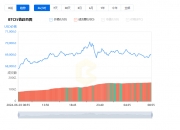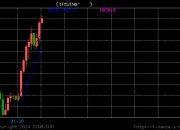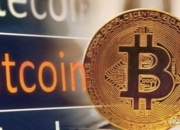最近差评君在边干饭,边刷手机的时候,被一个 2007 年的视频给吓尿了。
A 2007 video scared the shit out of him while he was cooking and brushing his cell phone.
片子里的年轻人操着台湾口音,在马云和史玉柱等大佬面前,介绍着一个名叫 web3.0 的项目。
The young people in the film played the Taiwanese accent and introduced a project called Web3.0 in front of big men like Ma Yun and Shiyuju.
“ web1.0 是单向的,由公司主导..... web2.0 是双向的,相当于 YouTube ,大家都能上传东西互动。 ”
“Web1.0 is one-way, corporate-led... web 2.0 is two-way, like YouTube, and everybody can upload something to interact.”
“ 而 web3.0 是虚拟世界和真实世界的结合,可以分析用户在虚拟世界里的行为,去引导现实的消费。 ”
“Web3.0 is a combination of the virtual world and the real world that analyses users’ behaviour in the virtual world to guide real consumption.”
“ 这样,web3.0 就能打破内容和广告的界限,让新的商业模式能产生实质经济效益,也为营运本身带来获利。 ”
“Web3.0 will thus break the boundaries between content and advertising, allowing the new business model to generate substantial economic benefits and benefits for the operation itself.”
虽然现在关于 web3.0 的定义,可能和他描述的有点不一样。
Although the current definition of web3.0 may be a little different from what he described.
然而他讲的,不就是现在流行的元宇宙,还有早就被巨头们用上了的大数据和个性化推荐吗?
But what he's talking about is not the popular `strong' meta-cosmos
在十几年前互联网刚兴起的那年代,这一番超前的言论,直接把史玉柱整得云里雾里,马云也是一幅打量骗子的表情。
In the era of the rise of the Internet over a decade ago, this preposterous statement directly swept Stead's column into the clouds, and Maun was also a look at the liars.
而现在的差评君,却只想跪在手机面前,想知道他是如何穿越时空的?从哪里买的月光宝盒?
And now the bad judge just wants to kneel in front of his cell phone and wonder how he crossed time and space. Where did he get the Moonlight Box?
只不过可惜的是,宝岛老哥在节目中并没晋级,后来因为父亲癌症的变故,他也弃互联网从医,走上了中医的道路。
Unfortunately, Bojima's brother did not advance in the programme, and later, because of his father's cancer, he abandoned the Internet and took the path of Chinese medicine.
当然,这都是后话了。
Of course, that's all for now.
但在另一方面,宝岛老哥参加这个电视节目,却也成功引起了差评君的注意。
On the other hand, Boshima's brother's participation in this television programme has also been successful in drawing the attention of bad judges.
不查不知道,一查吓一跳。。。在这个名叫《 赢在中国 》的商业真人秀里,像是宝岛老哥这样的 “ 时间刺客 ” 和 “ 大预言家 ” 其实不在少数。
I don't know, I'm surprised. In this business reality show called "Strong" Winning in China, it's like "time assassin" and "big prophet" in Bo Island.
而《 赢在中国 》节目本身呢,也像一位见证者,见证了不少企业的兴衰迭起,并亲历了时代的变迁。
And the Winning in China program itself, like a witness, has witnessed the growth and decline of many businesses and has lived through the changes of the times.
要知道,在那个风起云涌的二十一世纪初,创新和创业可是最拉风的词儿。
You know, at the dawn of the twenty-first century, innovation and entrepreneurship are the best words.
分众传媒的老板江南春就吐槽过,那时候说自己是诗人已经不招女孩子们喜欢了,得说自己是商人才够有排面。
Jiang Namchun, the head of the mass media, said that he was a poet and that the girls would not like him, but that he was a businessman.
创业者、企业家就是那个时候万众瞩目的大明星。
所以在2006年,央视的王利芬就推出了真人秀节目《 赢在中国 》,计划从从民间选拔出商业人才。
So, in 2006, Wang Lifan, who has a high-profile view, launched the reality show Winning in China, which plans to select business talent from the private sector.
用现在的话说,《赢在中国》就是那个年代的创业圈《青春有你》和《创造101 》。
In the words of the present, Winning in China was the business circle of that time, Youth with You and Creation 101.
节目的评委也个个都是大佬,像是马云、俞敏洪、史玉柱、柳传志等等都是节目的常客。
The judges of the show are also the big ones, like Ma Yun, Yu Minhong, Shi Yu Jing, Willows, and so on.
而除了能认识这些大佬之外,节目组最高还能提供1000万的创业资金。
In addition to knowing the big guys, the programme can provide up to $10 million in entrepreneurial financing.
那个年代的真人秀有没有剧本,差评君不太清楚。
There's no script for the reality show of that time, and the bad judges don't know it.
但可以肯定的是,在剧情上《 赢在中国 》比现在的一些尬综艺可是要精彩许多。
But what's certain is that Winning in China is a lot better than some of the art of the day.
其中印象最深的,还要属一个名叫张向东的穷小子,当着慧聪网 CEO 郭凡生的面,预测慧聪网必定干不过阿里巴巴。
One of the most impressive of these is the poor boy named Zhang, who, in the presence of CEO Guo Fansheng, predicts that the smartness net will not be able to make it to Ali Baba.
作为中国第一批的电子商务公司,那时候的慧聪网和阿里巴巴可以说是一北一南并驾齐驱。
As the first e-commerce company in China, Hye-Seknet and Ali Baba could be described as one-north and one-south parallels.
面对一位无名之辈质疑,郭凡生马上还击到: “ 我已经这么成功了,你认为我还不行。是,我确实不行。但这话要让历史来说。 ”
Faced with a question from an unknown man, Kwok Vanshem immediately returned: “I've been so successful, you think I can't. Yes, I can't. But let history say that.”
大佬一回应,身边的其他嘉宾也纷纷搭话附和,一时间现场立马就充满了欢快的气息。
As soon as the big man responded and the rest of the guests came together, there was joy at the moment.
后面的故事呢,应该也就不用差评君多说了。
And the rest of the story, it's not a bad story for you to tell.
在阿里巴巴早已坐拥万亿市值的同时,慧聪网,渐渐在互联网世界销声匿迹,如今只剩下6亿港元的市值。
At the same time that Alibaba has long held a trillion dollars in market value, Wieswig is gradually disappearing in the Internet world, leaving only HK$600 million in market value.
前员工和老东家仇人见面的狗血剧情,也是差评君吃瓜爱看的。
The blood drama between the former employees and the old Dong family's enemies also made it easier for them to watch.
一位名叫吴志祥的年轻人,就曾因为和马云意见不和,就被马云 “ 优化 ” 和 “ 毕业 ” 了。
A young man named Wu Zhixiang was “optimised” and “graduated” by Ma Yun because of his disagreement with him.
出来单干的吴志祥创办了同程旅游,还亲自来到《赢在中国》,现场感谢了一波马老板的炒鱿鱼之恩。
Wu Zhixiang, who founded the same trip and came personally to Winning in China, thanked the boss of the Ma for firing him.
虽然被不少投资人说,同程旅游的未来就像趴在玻璃上的苍蝇,有光明却没未来。
While many investors have said that the future of the same journey is like a fly on a glass with light but no future.
但吴志祥靠过人的实力还是成功晋级,拿到了《赢在中国》的第五名。
But Wu Zhixiang was successful in his promotion by virtue of his strength, and won the fifth in Winning in China. >/strang >
为了寻求更大的融资,在吴志祥拒绝了节目组500万的融资之后,2015年,同程旅游获得了来自腾讯等资本的60亿投资。
In search of greater financing, following Wu Zhixiang's rejection of the programme group's $5 million funding, in 2015 the same-way tourism received $6 billion in investment from capital, such as tether.
而倒戈加入腾讯系的同程,如今市值高达300多亿。
The market is now more than 30 billion dollars.
因为评委们个个都是不差钱的主,除了选手和评委之间的对手戏,有的时候啊,评委之间还会互相掐起来,也是常有的事儿。
Because the judges are the only ones with the money, except for the competition between the contestants and the judges, and sometimes the judges pick each other up, it's always the same thing.
像是一期节目里的辩论题便是 “ 汇源果汁是否应该在万荣建厂? ”
And it's like the debate on a show called "Is the Juice of Merrillion?"
选手们在唇枪舌剑辩论完之后,汇源果汁的创始人朱新礼和今日资本的徐新,就在点评阶段拌起了嘴。
After the debate over the words of the contestants, the founder of the juice from the sinks, Joo Xinli, and the capital of today, Xu Xin-Jin, rallied their mouths at the evaluation stage.
这边说万荣原料丰富,但比较贫困,在这儿工厂不仅能减少成本,还能带动老家当地人民致富。
It says here that there is plenty of material, but it's poorer, where factories not only reduce costs, but also bring wealth to the local people in their home countries.
那边说这笔投资不够理性,完全就是意气用事,如果把建厂的几亿元花在渠道和品牌上,效果会更好。。。
That said, the investment was not rational, and it was simply a matter of effort, and it would work better if hundreds of millions of dollars were spent on channels and brands.
谁对谁错差评君不好评价,反正汇源果汁的现状,是挺拉胯的。
Whoever misjudges who is wrong is not well judged, and the current state of the juice from the positive sink is quite stupendous.
因为在参加《 赢在中国 》当年,正值汇源果汁上市, IPO 集资24亿港元的汇源果汁,成了当年港交所最大的 IPO 项目。
Because in the year of Winning in China, IPO collected HK$2.4 billion in sink juice, which became the largest IPO project in Hong Kong during the year.
而如今的汇源果汁因为经营不善,已经负债114亿,但在破产重整期间,汇源果汁去年还向河南捐了100万的物资。。。
While today's sink juice is already in debt of $11.4 billion because of its poor operation, it also donated $1 million to Henan last year during the period of the restructuring of the bankruptcy.
再看着节目里当年意气风发的朱新礼,多少有些物是人非了。
"Strong" looks back on the show at the same time, and there's something wrong with it.
而在当时全民创业的氛围下,甚至连《赢在中国》的创办人王利芬,都从央视出来单干,就创办了优米网。
In a climate of popular entrepreneurship, even Wang Liffin, the founder of Winning in China, had created the Yominet by looking at it alone.
优米网最大的卖点就在于,有《赢在中国》的独播权。
The biggest selling point of Yominet is the monopoly on Winning in China.
在出走之后,王利芬继续整出了《赢在中国蓝天碧水间》、《赢在中国2016》等等的节目。
After the run-off, Wang Liffin continued to build the show Winning in the Blue Sky Water Room in China, Winning in China 2016, and so forth.
但因为这些节目不再关注民间的创业者,而是找来一堆企业家玩真人秀游戏,更是像是一个老板们互相作秀和宣传自己的舞台。
But instead of focusing on private entrepreneurs, these programmes bring in a bunch of entrepreneurs to play reality show games, more like a stage where the bosses show each other and promote themselves.
最后,连《赢在中国》这部综艺自己,也在时间的长河之下被冲没了。
Finally, even " Winning in China ", the art itself, was washed away under the river of time.
连评委们和节目都如此,《赢在中国》中绝大部分的选手其实也早大都历经沉浮,在商海里找不到影子了。
Even the judges and the programme, and the vast majority of the winners of Winning in China, have long since sunk and no shadow has been found in the commercial sea.
唯一还活跃在大家面前的,应该就前面提到的吴志祥了吧。
The only one who is still active in front of you should be just about Wu Zhixiang, as mentioned earlier.
总得来说呢,《 赢在中国 》这节目诞生于那个时代,可能也只属于那个时代。
Anyway, Winning in China was born in that era, probably only in that era.
毕竟那时候,马云还没因为“996福报论 ” 而口碑急转直下,俞敏洪也还没去搞直播带货,新东方才刚刚上市。
After all, Ma Yun didn't turn his head off because of the "Focus 996," and Yu Min Hong didn't go to the live feed, and the new East just went to the market.
大伙们还在功能机上用着 QQ2007,而创业在大家的眼中是一件很酷的事情,互联网就像一篇还未开垦的土地,充满希望。
People are using QQ2007 on their servers, and it's cool in your eyes to start a business, and the Internet is like a land that hasn't been reclaimed, full of hope.
而看着这些十几年前的创业者、老板们讨论着未来,也多多少少也有些错位感。
And looking at these entrepreneurs, bosses, who were talking about the future over a decade ago, there's a little bit of a misunderstanding.
大数据和个性化推荐早就无处不在、 web3.0 的概念又被重新炒作了起来;阿里巴巴最后一家独大、如今成为了一座大山等等。。。
Big data and recommendations for personalization have long been everywhere, the concept of web3.0 has been reactivated; Alibaba's last family is unique and now a big mountain, and so on.
这些在当时看似是荒唐话的预言,和当下真真切切的现实,就这样巧妙结合和在了一起。
These predictions, which seemed absurd at the time, and the real reality of the moment, so tactfully combined and joined together.
或许,这就是这些视频,为啥在最近越来越火的原因吧。
Maybe that's why these videos are getting hot lately.
注册有任何问题请添加 微信:MVIP619 拉你进入群

打开微信扫一扫
添加客服
进入交流群

















































发表评论